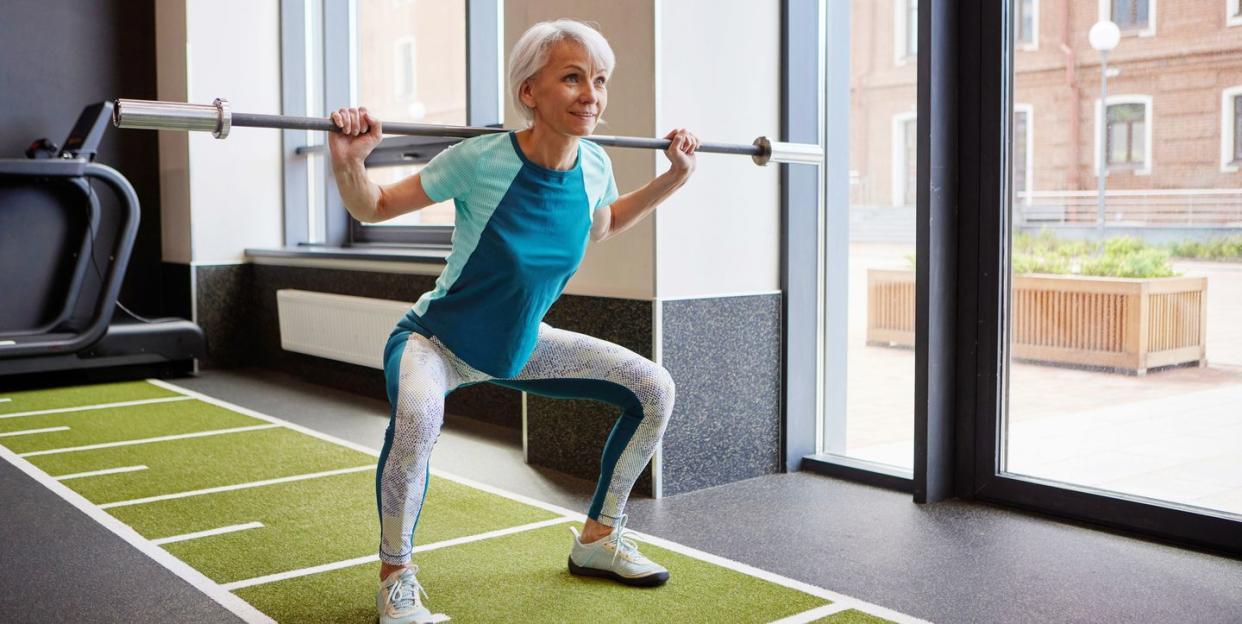1 year of heavy strength training could offer 4 years of benefits, study suggests

As we age, we lose muscle strength and size (a process also known as sarcopenia),and experience a decrease in bone density, as your body's rate of bone breakdown (resorption) surpasses that of bone formation and mineralisation. A recent study has found that heavy resistance training combats these physical changes, and helped mature adults with an average age of 70 years old to maintain leg strength for up to four years - more so than with moderate-intensity exercise, and not exercising at all.
How was the research conducted?
Researchers used data from the Live Active Successful Ageing (LISA) study in Denmark, dividing 451 participants - mean age 71, with 61% women - into three groups. For a year, the first group completed heavy resistance training; the second, moderate-intensity training; and the third was a control group that did not exercise.
Heavy resistance training constituted exercise machines like leg and chest presses, DY rowing, and leg curls. Moderate intensity comprised squats, push-ups and seated low rowing, using resistance bands and their body weight to train. Both groups did lower-back and core workouts.
In terms of training frequency, the heavy group workout group trained at a private fitness facility three times a week, while the moderate resistance group did one session per week at a hospital and two sessions per week at home.
How did the study measure muscle function?
Tests included measuring body fat mass, isometric (exercises where the muscles contract but don't change length e.g. plank) strength of the quads, maximum knee bend force and brain and thigh MRI scans. Participants also had their daily step counts tracked.
These tests were performed at the start of the study, immediately afterwards (one year), and another year after that. Researchers then followed up with participants in the subsequent two years (four years after starting).
Overall, the heavy resistance training group scored the highest, maintaining the scores for isometric leg strength that they had shown at the beginning, while the other groups experienced a decline, although it must be noted that the dip for the moderate-intensity group was minimal.
Over the four years, both strength-training groups did not see a change in their body-fat levels. All three groups saw a decrease in grip strength, lean leg mass, and leg extension force, however. The academics thought that the benefits could be due to neural adaptations.
'In well-functioning older adults at retirement age, 1 year of HRT [heavy resistance training] may induce long-lasting beneficial effects by preserving muscle function,' the study authors said.
What are the study's potential limitations?
The research was conducted while the Live Active Successful Ageing (LISA) study was still ongoing, meaning the data set that information was collected from was incomplete, while some data relied on participants self-reporting. Academics also noted that the participants in the study were probably healthier and more active than standard ageing demographics.
Non-study author Ryan Glatt, CPT, senior brain health coach and director of the FitBrain Program at Pacific Neuroscience Institute in Santa Monica, CA, also noted: 'The study on heavy resistance training (HRT) suggests it might maintain muscle strength for up to four years in older adults. However, the long-term benefits need more replication. While HRT showed better results than moderate training, the specific population [of the study] limits generalisability. Claims about neural adaptations over muscle size need further evidence. Recommendations for HRT should be cautious, considering individual health risks.'
More strength-training content
Cut through the noise and get practical, expert advice, home workouts, easy nutrition and more direct to your inbox. Sign up to the WOMEN'S HEALTH NEWSLETTER
You Might Also Like


